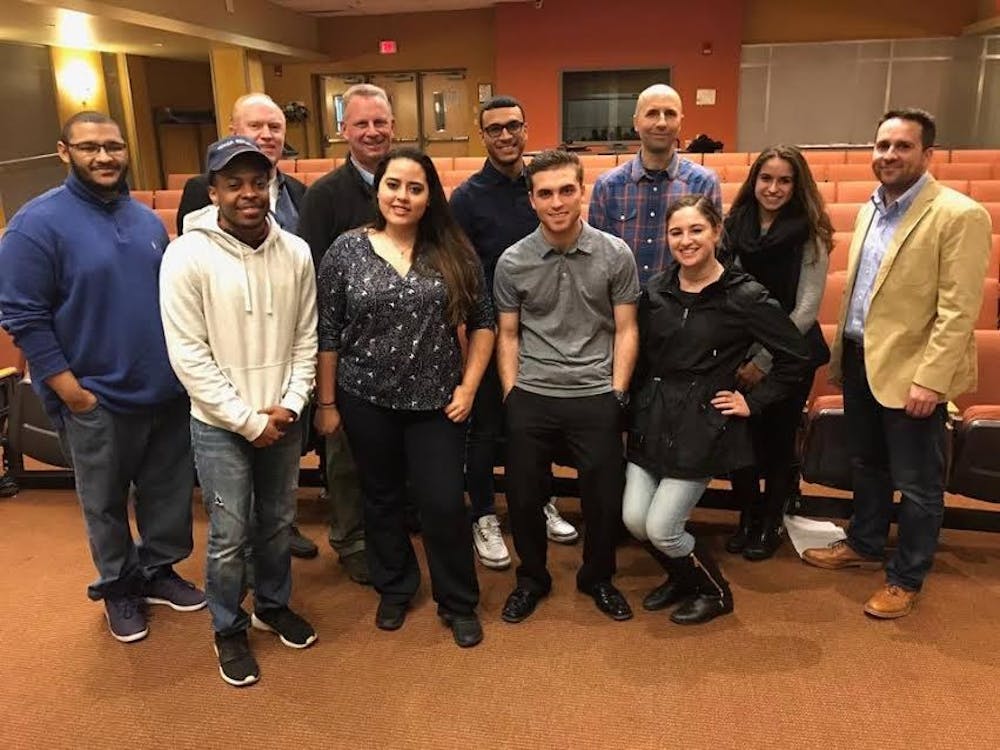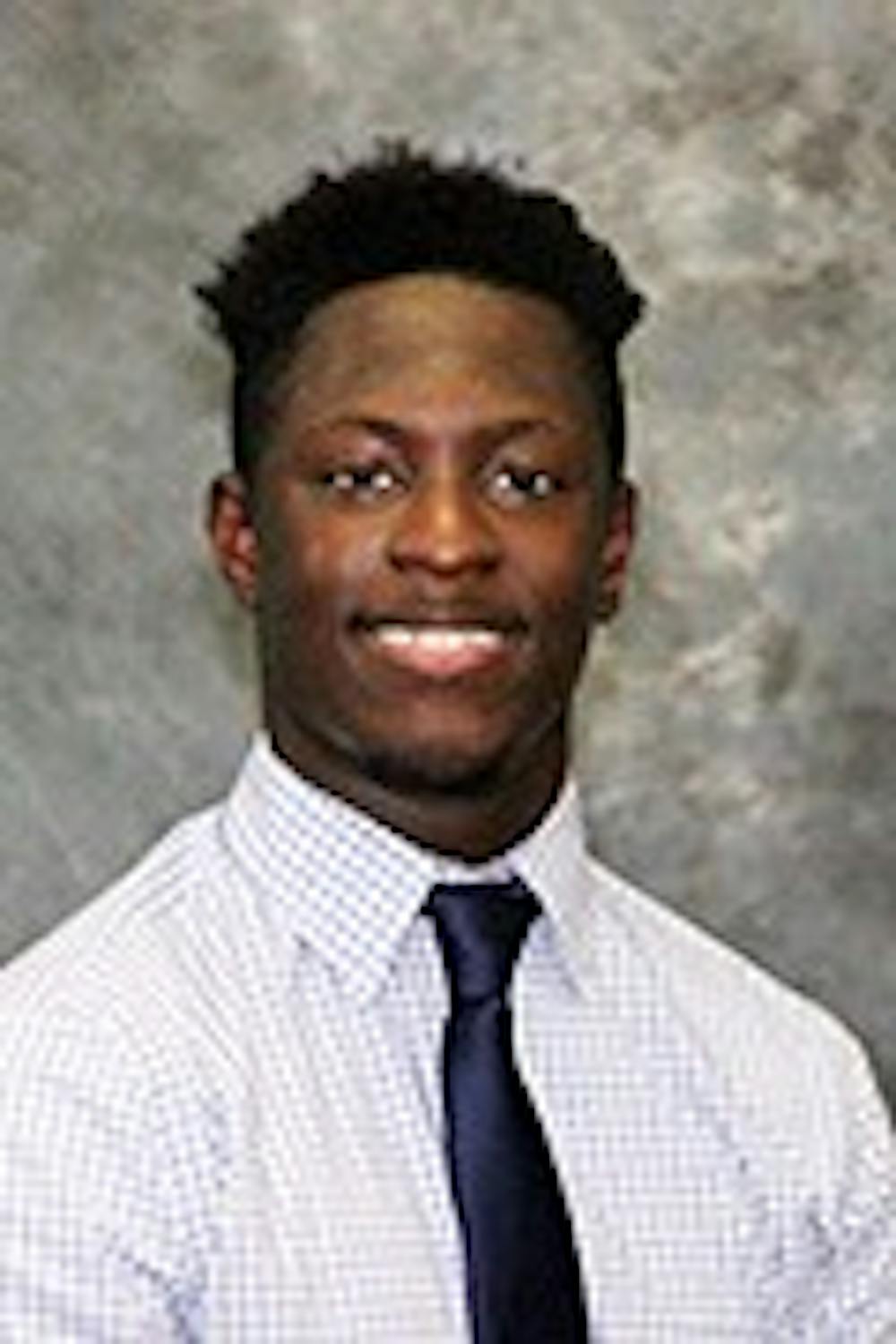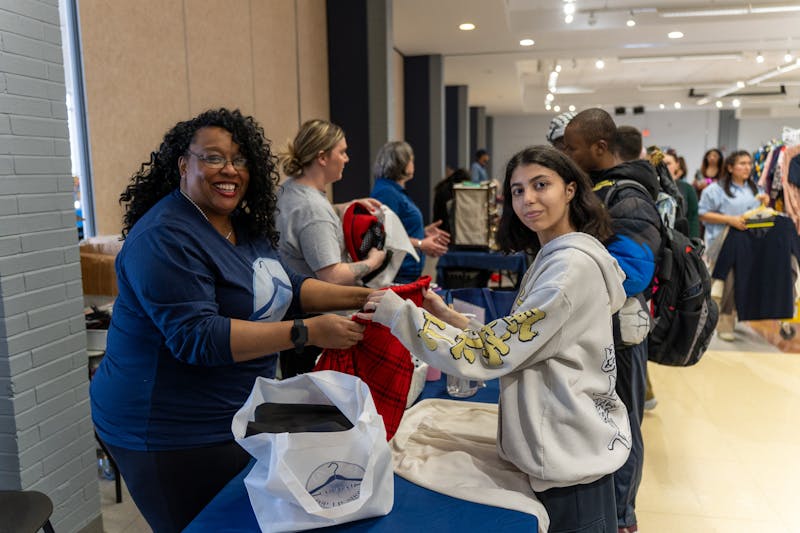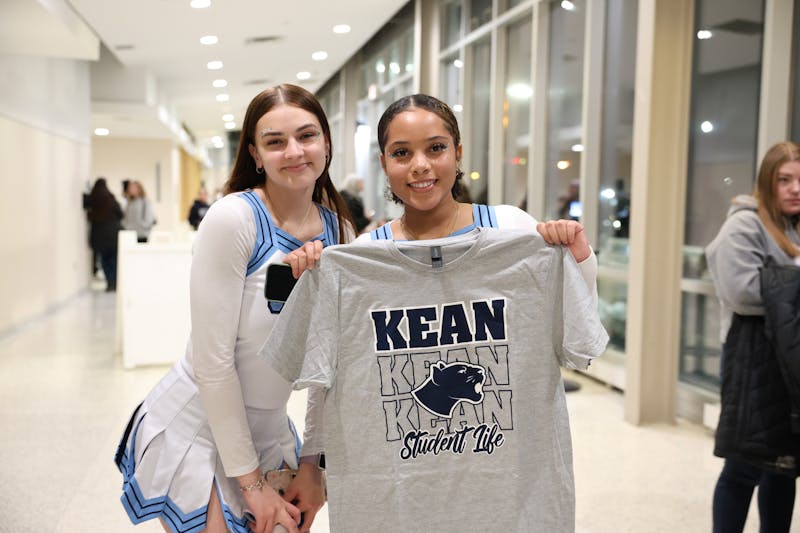The Public Relations Student Society of America (PRSSA) organization and the Communication Department of Kean University hosted their annual Sports Communication and Careers Panel on Tuesday, March 28, 2017.
Four panelists, each with experience in the sports media business, spoke about their lives and careers as sport authors, reporters, broadcasters and journalists in this one-hour discussion.
In the lecture hall room 106 in the Maxine and Jack Lane Center for Academic Success (CAS), members of the Kean student body filled the seats of the small auditorium, listening with inquisitive ears to the wisdom and knowledge the four panelists reverberated to them. Notably, these four speakers' knowledge came from their personal backgrounds and experiences.
The speakers were listed as followed: Al Dukes, a producer of the Boomer & Carton radio program on WFAN sports radio and a Kean University alumnus; Chris Brienza, the current vice president of Coyne Public Relation's Sports and Media practices and the head of its New York City office; George Falkowski, formerly of the New England Sports Network and News 12 New Jersey for more than 30 years and an adjunct professor; and Jerry Barca, author of "The Big Blue Wrecking Crew" and a current adjunct professor.
Each panelist sat in a wooden chair in a column of four, answering questions and giving insight into what the life of a sports media member consists of. The panel started with each member revealing how they got their start in the world of sports media. The four spoke of prior career plans before they became interested in the media business.
"I actually started school with an art major, and I ended up failing a basic drawing course," said Falkowski. "I ended up taking general education courses, and thought I was going to apply to Northeastern University. I got accepted, but the funds were too much to pay. I started to take a couple of communication classes [at Kean], and all of a sudden, I'm taking journalism classes, getting on the radio station, writing columns for the school paper, and then I landed an internship with Stan Fischler, who worked for the National Hockey League (NHL) in Boston, and became my mentor. It has been a blast since that."
A majority of the panelists also mentioned that the sports communication field was not their first option for a career, but the four claimed that it was their love for sports that motivated them to pursue their newfound careers at the times they began.
"I dreamed about working in sports, but working in public relations was an accident," Brienza said. "My goal was to be a broadcaster, so I got accepted to NYU [New York University] and got a job at The Star Ledger, covering high school soccer and football. This later got me a job at MSG [Madison Square Garden] Network in production, and I did not like it. I ended up quitting that job and drove across the country; [I] would make a salary driving a cab and worked a bunch of odd jobs to find out what I wanted to do next. I was able to work [the] Knicks game nights in college. Just by being there and handing my credentials, I was able to acquaint myself with the Knicks organization, allowing me to get a job writing a propaganda editorial. I found it as an awarding experience."
The four speakers started the program by giving their own unique answers when asked about their opinions on women and people of different ethnicity working in this media field. All in agreement, the four speakers commented on the state of diversity in the world of sports media, saying that different people from different cultures are vastly improving the landscape of the business.
Falkowski commented on this, giving examples of certain female pioneers who have devoted their efforts into making the field of sports media more diverse. Particularly, he mentioned the famous Yankees reporter Suzyn Waldman and her struggles to overcome the difficulty of making a name for herself and report on the Yankees in a male-dominated business.
"We talk about women in sports and how much the landscape has changed since the 1970s, and I can say that it is getting better," added Falkowski. "I think, as a culture, we've evolved to the point where it is not unusual to see a woman in the locker room. The behavior of a woman reporter is scrutinized more than males, but it is changing. In fact, for those who wish to get into sports media, marketing, public relations or those who are interested have no idea what these women had to go through to make the field better."
Questions about the panelists' content of their programs or companies being appealing to both hardcore and casual sports fans came up in the discussion, and producer Dukes gave the most detailed answer of all.
"We could not survive by just appealing to hardcore sports fans. We need to reach people who are casual sports fans as well. Even though someone may not be a fan of a team or never watch sports, they may be interested in finding out that a former player and hall-of-famer got involved in an altercation while a game was going on," Dukes said.
"Our objective is to make stories that you do not need to be a fan of a team to follow. That is what we have to do for our radio show [Boomer and Carton on WFAN radio]. We have to reach a mass audience of all fans and not just fans of a given team. At the end of the day, we are competing with other radio stations in the New York area, such as Z100 and Hot 97. We have a lot of competition, especially in the morning, so just statistics and player news cannot be done by itself."
Another question asked to the panelists dealt with keeping their fandom as a fan of particular sports team under control to prevent biased writing or reporting. All of the speakers gave the same answer: there has to be a level of professionalism in this business.
"I grew up as a crazy fan of sports. I remember crying over the Notre Dame football team losing the Cotton Bowl when I was a kid, but professionally, I think it [the professionalism] is affected when you get very close to the subject. The athletes and PR officials are all people, and in journalism, it is almost as if you cannot be a fan of a particular team. For me, I was lucky to be able to write stories about my childhood heroes in Mickey Mantle from the New York Yankees early in my career."
Those speaking also spoke on a range of questions pertaining to different topics brought up by the students who attended this panel. From keeping their markets interested in the digital age, to competing with newer sports media companies, George Falkowski, Chris Brienza, Jerry Barca and Al Dukes gave their best answers, saying that technology is rapidly improving with the type of outlets changing and that to succeed in this business, students must be as technologically savvy as possible. The four also commented on what kept them motivated to pursue this media business, other than the love of sports.
"I think one of the greatest quotes that I have ever heard, was that, sports are the greatest thing to not matter," George Falkowski said. They provide an escape from the lives that people live. For me, the best thing about the job that I had, was being able to tell my wife, 'Honey, I have to go watch the games for work!'"
Certainly, the students, faculty and admirers of sports media walked out of this event with a clear mindset on how the business works. Michael Canova, head of Kean University's PRSSA organization, said that putting the event together and seeing the output of positive reactions from the attendees proved it to be worthwhile.
"It took a lot of time and anxiety to put together, but this is the reason why we [the PRSSA] do these kind of things," Canova said. "I hope it helped the people who attended the event with your career endeavors, and gave them an understanding of what really happens in this business."







